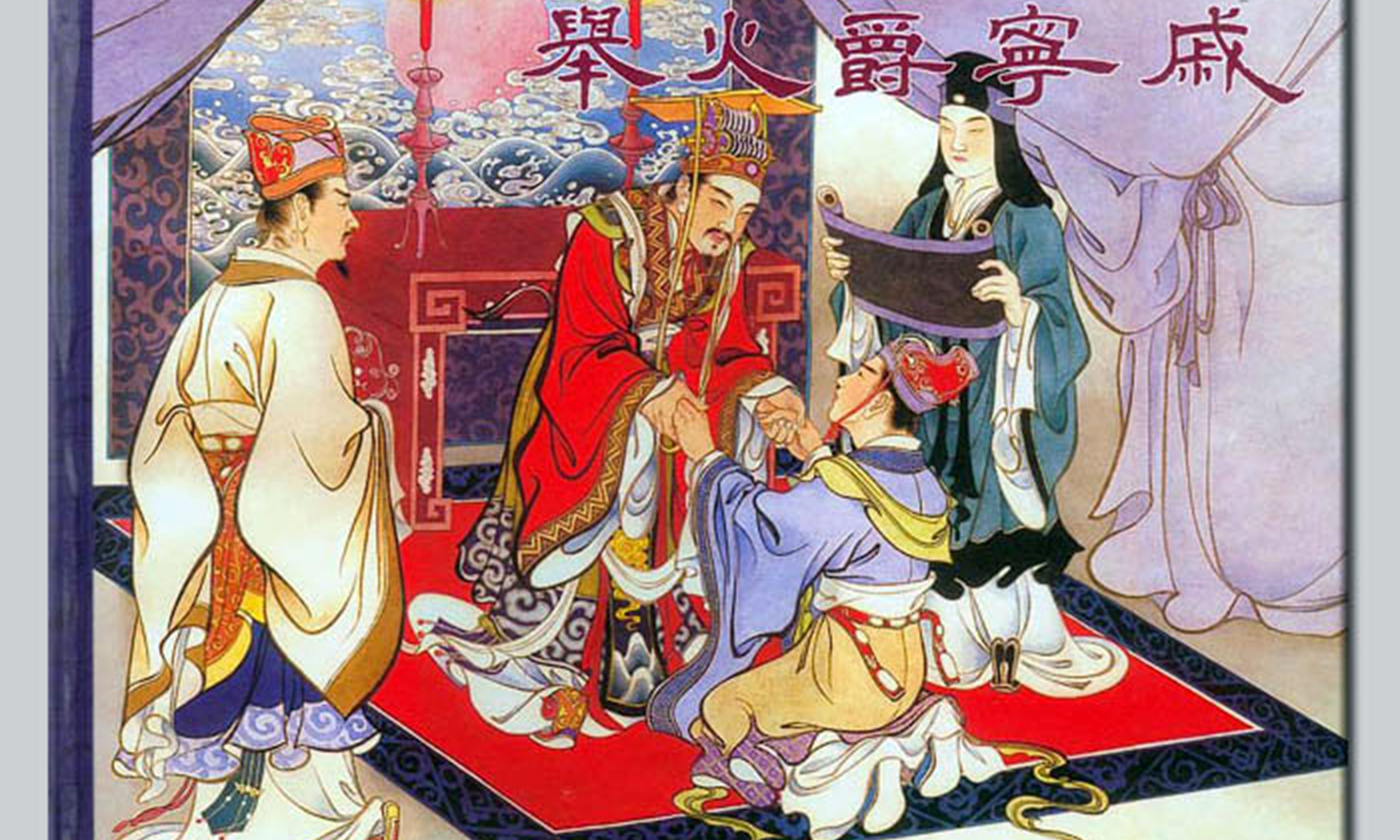By Jade Pearce
Dizi Gui (弟子规) (Standards for Being a Good Student and Child) is an ancient Chinese text for children that teaches moral values and etiquette. It was written during the Qing Dynasty during the reign of Emperor Kangxi (康熙帝) (1661-1722) by Li Yuxiu.
Beneath the conservative, “old-school” verbose of this ancient classic, one can still find gems of wisdom that remain surprisingly relevant to our modern society. A new lesson is covered in each issue.
Ever been in a situation where you are feeling overwhelmed, yet someone comes to badger you with more trivial problems or—worse still—nosy questions that don’t help you at all?

In the fifth chapter of Dizi Gui, titled “Love All Equally”, we are taught that to love and be considerate of others.
To do so, one of the fundamental things that we must have is an awareness of the person’s mood and situation.
Ever been in a situation where you are flooded with work or feeling overwhelmed with problems, yet someone comes to badger you with more trivial problems or—worse still—nosy questions that don’t help you at all?
I’m sure that at that point, you’re wishing that person could be a bit more tactful and see that you’re in distress!
As mentioned in Dizi Gui, “When a person is busy, don’t bother him with small matters.
When a person is troubled, don’t bother him with words.” If we can’t do anything to help a person’s situation, the very least we can do is to minimise his current stress.
Giving the Right Advice at the Wrong Time
Emperor Ming was the second emperor of the State of Cao Wei during the Three Kingdoms Period. During his reign, one of his most beloved daughters passed away.
Devastated by her death, the grief-stricken emperor decided to hold a burial funeral for her, and expressed his wish to personally lead the funeral procession to see her off on her final journey.
On hearing this, one of the ministers, Yang Fu, said to the emperor, “In the past, when your parents—the previous Emperor and Empress Dowager—passed away, Your Highness didn’t personally lead their funeral processions. It would be inappropriate and against our ceremonial laws for you to show preferential treatment towards your daughter as compared to the previous Emperor and Empress Dowager.”
But the emperor was too overwhelmed with grief to heed Yang’s words, and he decided to ignore Yang’s advice.
Yang, however, continued to harp on the matter, badgering the emperor for days on end about “ignoring ceremonial laws”. The harassed emperor eventually lost his temper and stripped Yang Fu of his minister status, banishing him from the court.
While Yang’s advice wasn’t wrong, the troubled emperor simply wasn’t in the right frame of mind to take Yang’s advice. Yang might have done himself some good if he had recognised the Emperor’s feelings, and given the emperor the chance to grieve in peace.
Instead, he chose to continue badgering the emperor with his views, delivered at the wrong time and under the wrong circumstances. His outcome is thus of no surprise to anyone!
Value Strengths Over Shortcomings
We should also make sure that the things we say do not cause harm to others.
As expounded in Dizi Gui, “When people have shortcomings, definitely don’t publicise them. When people have secrets, definitely don’t tell them.”
Picking up on and spreading around a person’s shortcomings can give listeners a skewed and unfair representation of that person.
In contrast, Duke Huan(齐桓公)—ruler of the State of Qi—chose to focus on the person’s positive aspects instead, which helped him to make the right decision.
Early in the Spring and Autumn period, Duke Huan had started to establish his hegemony over the surrounding states. In order to complete his conquest, he sought out talents from across the land to assist in his campaign.
During his search, the duke came across a man named Ning Qi, whose character and abilities greatly impressed the duke. Duke Huan decided to entrust an important mission to him.
Upon learning this, the duke’s advisors panicked and warned the duke, “Ning Qi was previously a citizen of the State of Wei. Before trusting him, Your Excellency should send scouts to the State of Wei to gather intelligence on Ning Qi, to find out if he is really as good as he seems.”
Duke Huan replied, “That is not a good idea! I believe that we’ve all made small mistakes before. However, most humans will only recall the trivial mistakes that a particular individual has made, and they forget about that individual’s talents and strengths. That’s why many rulers have difficulty finding talented individuals.”
So Duke Huan went ahead with his plan, and over time Ning Qi did prove himself to be an extremely capable and talented individual. With his help, the duke successfully completed his conquest.
The duke was fully aware that no one is perfect, and any negative gossip or hearsay of a person is not a fair representation of that person’s true character. In the same vein, we should be considerate and refrain from flippantly publicising others’ shortcomings, so that we do not wrongfully bias others against them.
















